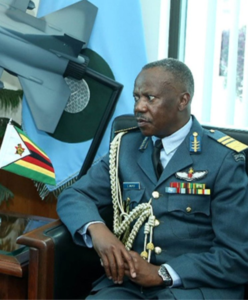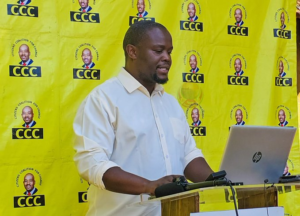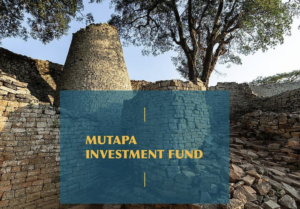REWRITING HISTORY FOR POLITICAL POWER: ZANU PF’S CONTROVERSIAL ALIGNMENT WITH ZIMBABWE’S HEROES

In an intriguing twist of political narrative, Patrick Chinamasa, a key figure in Zimbabwe’s ruling party Zanu PF, has sparked a wave of controversy with his recent statements. He audaciously aligns the party’s political agenda with the legacies of significant historical figures, crafting a narrative that intertwines the past and present in a bid for political legitimacy.
Chinamasa’s bold remarks suggest that the actions of modern political figures, like Tshabangu, inadvertently support Zanu PF’s cause. He further claims that historical heroes, such as Mbuya Nehanda, fought for what the ruling party currently stands for. This is not a novel stance from Chinamasa; back in 2020, he equated President Emmerson Mnangagwa with Mbuya Nehanda, a revered 19th-century ancestral spirit. He argued that the social media criticism leveled against Mnangagwa is reminiscent of the resistance faced during the colonial era, drawing parallels with the public beheadings of anti-colonial fighters like Nehanda and Sekuru Kaguvi.
Chinamasa’s approach goes beyond mere political rhetoric. He intertwines the party’s interests with Zimbabwe’s historical resistance against colonialism. By drawing parallels between Mnangagwa’s leadership and the struggles of iconic figures like Nehanda, he positions Zanu PF as the modern embodiment of the nation’s fight against external oppression. This analogy extends to interpreting social media backlash and international sanctions as contemporary forms of the challenges faced by Nehanda and her contemporaries.
However, critics may view Chinamasa’s remarks as a strategic manipulation of historical narratives. They argue that this is a move to validate Zanu PF’s contemporary political actions and to consolidate its power. By equating the party’s leaders and agenda with national heroes revered for their anti-colonial resistance, Zanu PF seeks to align itself with a legacy of national sovereignty and resilience. This approach also serves to frame modern political challenges, such as sanctions and social media criticism, within a broader historical context of resistance and struggle for sovereignty.
The comparison of social media attacks to the colonial-era oppression faced by Nehanda and others is particularly striking. It suggests a continuity between past and present struggles, implying that current criticisms of Zanu PF and its leaders are akin to the colonial tactics used to suppress and discredit national heroes. This narrative positions the party as a defender of national dignity against external forces, an angle likely to resonate with a populace deeply aware of its colonial history.
Chinamasa’s rhetoric reflects a broader trend in political discourse where historical narratives are repurposed to serve contemporary political ends. In Zimbabwe, where the legacy of colonialism and the liberation struggle remains a potent force in public consciousness, such parallels can be particularly impactful. However, the appropriation of these legacies also raises questions about the selective interpretation of history and its use in legitimizing current political agendas.
In conclusion, Patrick Chinamasa’s remarks represent a complex interplay between historical memory and contemporary political strategy. While his statements may strengthen Zanu PF’s narrative as a continuation of the nation’s anti-colonial legacy, they also highlight the contentious use of historical figures and events in current political discourse. Whether this approach will resonate with the broader Zimbabwean populace remains to be seen, but it undoubtedly adds a new dimension to the understanding of political rhetoric in post-colonial African contexts.




It’d be interesting to hear your thoughts on the implications for the broader historical discourse in Zimbabwe. Does this place Tshabangu somewhere in the history of our country and if so, when did we start respecting sellouts. This is not about partisan politics, its about the people who whose hopes were shattered by the MP recalls.
I appreciate your insight into the political rhetoric used by Chinamasa, Zondayi. It raises a question: could this strategy of aligning with historical figures potentially alienate some segments of the population who may view these comparisons as misappropriations of their heritage? I’m curious about the diversity of public reactions to these claims.